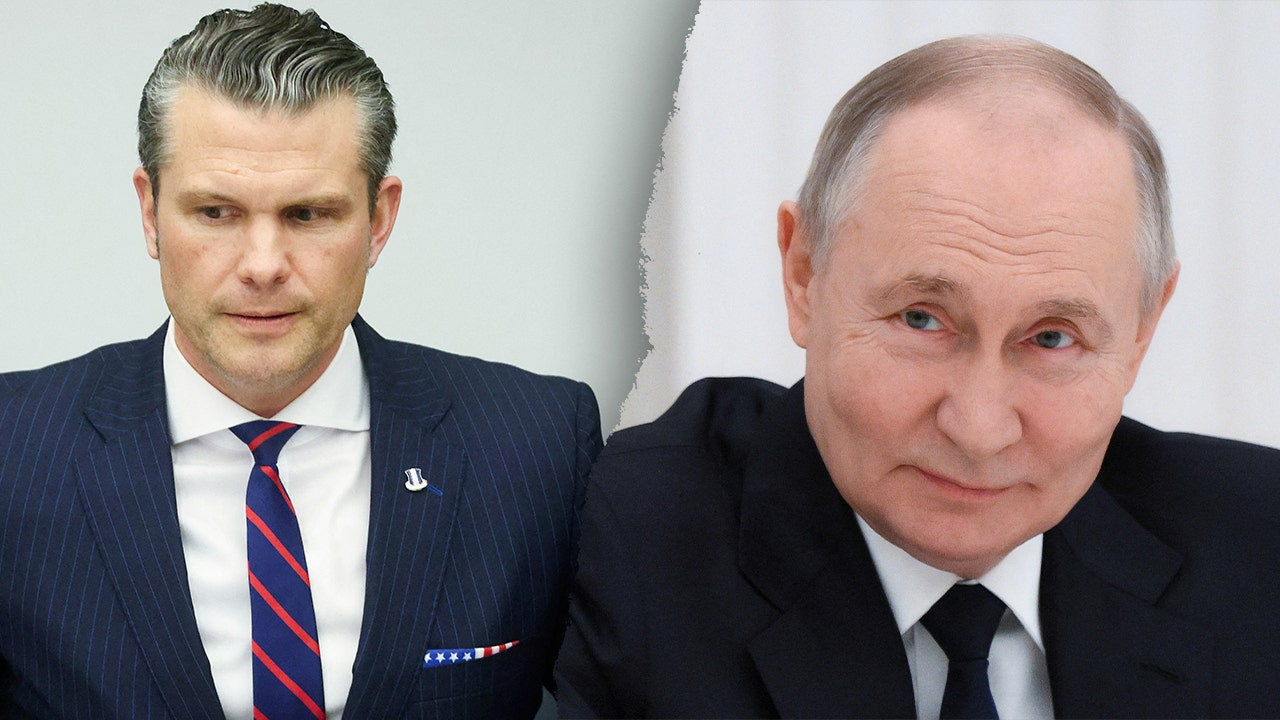Obama officials, Trump critics target Hegseth’s Ukraine ‘concessions’ as ‘biggest gift’ to Russia

Defense Secretary Pete Hegseth’s recent comments regarding Ukraine’s pre-war borders with Russia have sparked controversy among Obama officials and Trump critics. Hegseth stated that returning to Ukraine’s pre-2014 borders is an unrealistic objective, and called for Europe to offer security guarantees to Ukraine after the war, rather than the U.S. This stance has drawn criticism from those who believe it gives up leverage before peace negotiations with Russia begin.
Critics, including Brett Bruen, director of Global Engagement under the Obama White House, argue that Hegseth’s remarks could embolden Russian President Vladimir Putin and undermine U.S. national security interests. They question why the Trump administration would make concessions to Putin before negotiations even start, suggesting that it goes against traditional diplomatic strategies.
Former ambassador to Russia, Michael McFaul, also raised concerns about the Trump administration seemingly giving Putin wins for free. He emphasized the importance of not conceding key strategic issues without gaining something in return, especially in negotiations with Russia.
Alexander Vindman, a Trump impeachment witness and former Europe director at the National Security Council, characterized Hegseth’s comments as a “complete capitulation to Putin,” which could embolden Russia and undermine peace in Ukraine and Europe. He warned that this approach could be a major blow to U.S. national security.
Rep. Judy Chu, D-Calif., echoed these sentiments, accusing Trump’s foreign policy of prioritizing Russia over America and its allies. The defense secretary’s call for Europe to take ownership of conventional security on the continent has also raised concerns about the U.S. relinquishing its leadership role in ensuring stability in the region.
Hegseth’s comments came just before President Trump engaged in talks with Putin and Ukrainian President Volodymyr Zelenskyy. The Trump administration’s approach to negotiations, including pressuring Ukraine to provide access to rare Earth minerals in exchange for security aid, has further fueled criticism from those who believe it is giving away too much without gaining sufficient concessions from Russia.
As tensions continue to escalate in the region, it remains to be seen how the U.S. will navigate its relationships with Ukraine, Russia, and European allies. The controversy surrounding Hegseth’s remarks underscores the complexities of international diplomacy and the challenges of balancing competing interests in conflict resolution.




